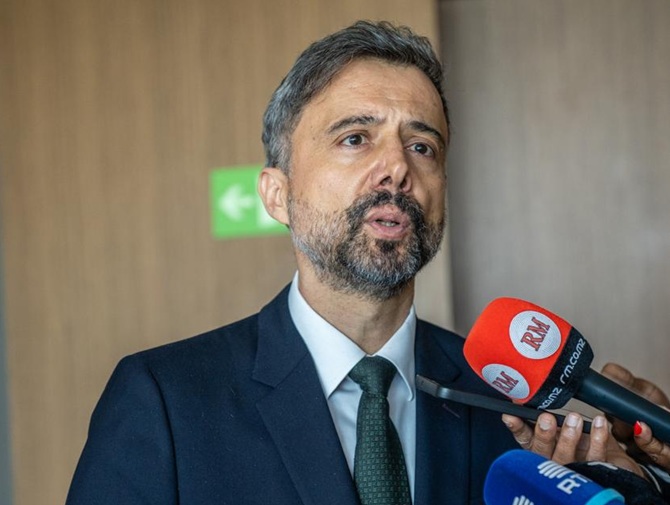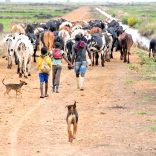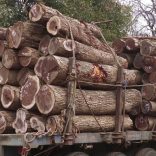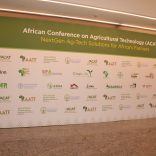Mozambique: 50,000 doses of foot-and-mouth vaccine needed to stop outbreak
IFAD argues that agriculture in Mozambique must go beyond subsistence

"In Mozambique, around 80% of workers are in the agricultural world, and we want this world to be a productive world, not just a world of subsistence, but a world in which income and revenues allow people to live dignified lives and lives in which people can stay in their communities," said Alvaro Lario. [Photo: Presidency of the Republic of Mozambique]
The president of the International Fund for Agricultural Development (IFAD), Álvaro Lario, argues that Mozambique’s commitment to agriculture must go beyond subsistence, to create value in the country’s production chain.
“In Mozambique, around 80% of workers are in the agricultural world, and we want this world to be a productive world, not just a world of subsistence, but a world in which income and revenues allow people to live dignified lives and lives in which people can stay in their communities,” Alvaro Lario said after meeting Mozambican head of state, Daniel Chapo, in Seville.
The meeting with the president of IFAD, a specialized United Nations agency focused on eradicating poverty and hunger in developing countries, specifically in rural areas, took place on the sidelines of the 4th UN Conference on Financing for Development, which is taking place in that Spanish city.

“The Seville Commitment is a global start for us to continue creating instruments and mobilizing resources, especially to combat poverty and hunger. […] There are a series of sections dedicated to financing food systems, financing agriculture and fisheries, and we believe that this is one of the economic drivers and sectors that can create more jobs,” Lario explained.
He also recalled that IFAD has a “partnership” with Mozambique and that the investments it has made allow it to support “small-scale agriculture, small-scale fisheries and, above all, to invest in youth, in opportunities and in the creation of jobs for small and medium-sized enterprises in production”.
“But also in the distribution and storage of a large part of the investments made in small-scale agriculture. We know that Mozambique has great potential and that together we can create employment opportunities and, above all, the capacity to have a decent income from food production,” he stressed.
The most recent IFAD project in Mozambique, to support production chains, was developed in 11 provinces and worth US$70 million, increased to US$200 million in conjunction with the African Development Bank (AfDB) and the European Union.
“Now we are looking into the new government’s priorities and, together, we will continue to invest to create these opportunities, especially for young people, for women, in everything that is small-scale agriculture,” he added.
“The priorities are the government’s priorities, the president’s priorities, and what we want, especially in the future, is to continue increasing the mobilisation of resources. We currently have an additional project of US$10 million (€8.5 million) with the Environment Fund, in the form of grants, so that we can continue to invest in climate and drought adaptation, in adaptation to many accesses to water, and also in the quality of the land,” Alvaro Lario commented.

Lario noted that the Mozambican head of state has been “very clear in stating that one of the priorities is to create opportunities for young people”.
“We were talking about special processing areas, that is, not only for subsistence, but also for processing that can also create this series of jobs. This is, therefore, one of the president’s priorities and also one of the priorities of our investments to support young people,” Lario concluded.












Leave a Reply
Be the First to Comment!
You must be logged in to post a comment.
You must be logged in to post a comment.